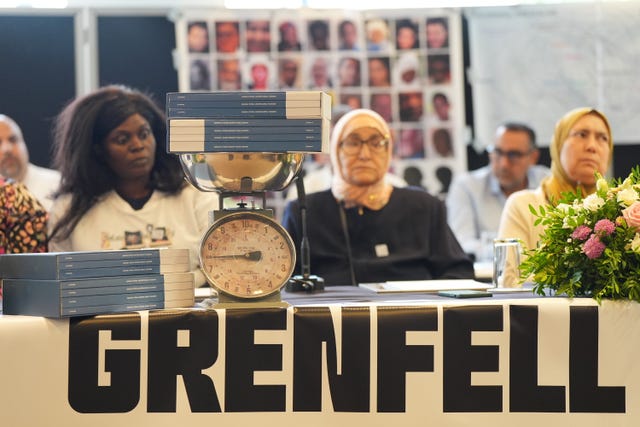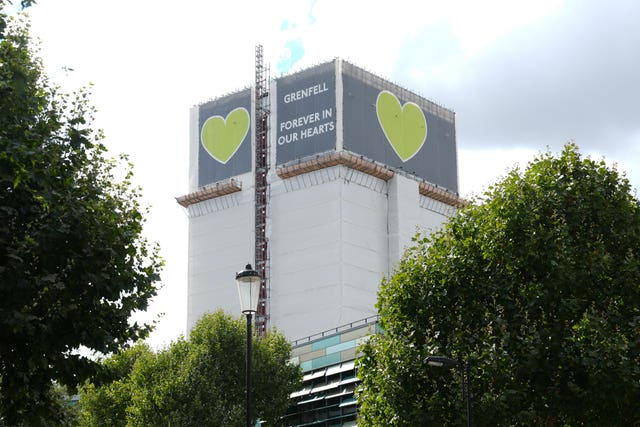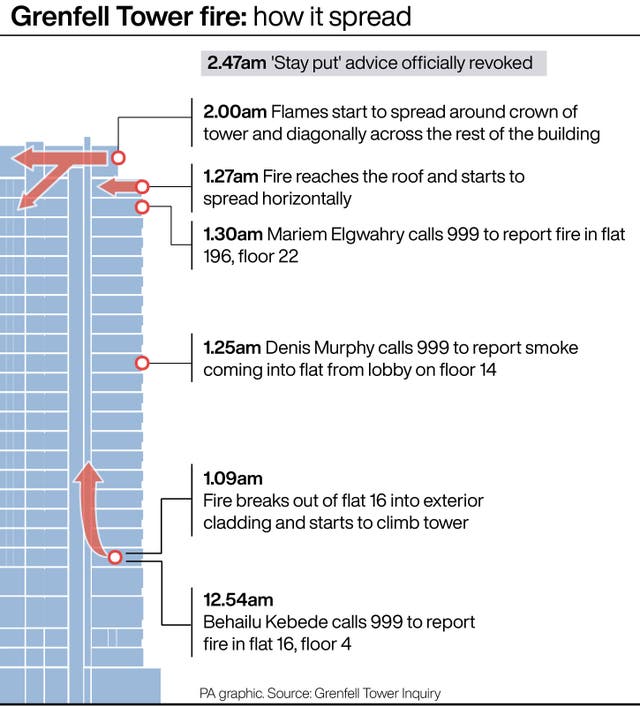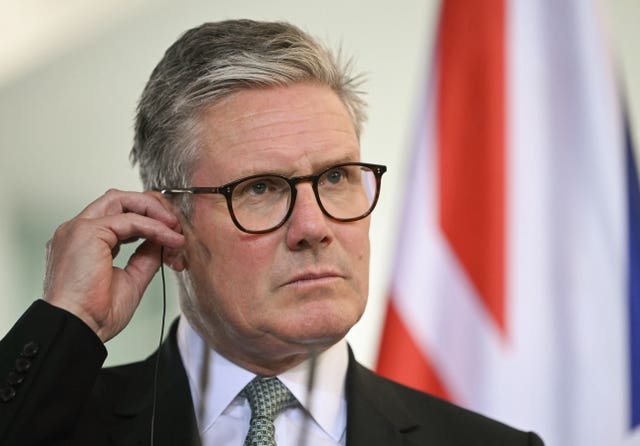CPS and Met Police must act ‘as quickly as possible’ over Grenfell fire – Rayner
Ms Rayner, who is also Housing Secretary, told Times Radio ‘justice delayed is justice denied’.

The Metropolitan Police and Crown Prosecution Service must act “as quickly as possible” over the Grenfell Tower blaze, the Deputy Prime Minister said.
Angela Rayner faced questions from broadcasters on Thursday morning about the next steps ministers will take following the end of the inquiry into the 2017 tower block fire.
The Housing Secretary’s appearance on the airwaves comes after Sir Keir Starmer issued a state apology for a disaster he said should never have happened.
The Prime Minister said the Government will look at all 58 of the inquiry’s recommendations “in detail”.
“This is an incredibly complex investigation,” she said.
“And as this is seven years on, and the phase two report is out, and it’s incredibly detailed, there’s considerable volumes to go through, and we will do everything we can to support the Met Police and the CPS to ensure that they can bring their findings and take their action forward as quickly as possible.
“Because, as many of the survivors and the families of the victims have said… justice delayed, is justice denied, and I absolutely agree that this has to come as quickly as possible.”
The Metropolitan Police has said it will need an estimated 12 to 18 months to pore over the report “line by line” before any criminal charges are brought.
The force has previously said a total of 19 companies and organisations were under investigation for potential criminal offences, along with 58 individuals.
Potential offences under consideration included corporate manslaughter, gross negligence manslaughter, perverting the course of justice, misconduct in public office, health and safety offences, fraud, and offences under the fire safety and building regulations.

The group said: “Hundreds of thousands of people are still living in homes with the same risk that there was in Grenfell seven years ago. This must change quickly.
“Grenfell was a disaster. Its legacy should not also be a tragedy.”
The latest Government figures, published at the end of July, showed that of the 4,630 residential buildings in England of 11m (36ft) or higher that had been identified with unsafe cladding, only around half (2,299) were noted as having either started or completed remediation works.
Of these, less than a third (1,350) overall were recorded as having completed such works.
The next updated figures are due to be published later in the coming weeks.

“At the moment, there’s £5 billion that’s available for remediation, so I don’t accept that the money’s not there,” she said.
“And these companies, the people that own these buildings, have financial resources as well.
“I don’t accept that there is not the money to do this remediation.”
She said there were sometimes “very complex” ownership structures for the buildings.
“Some are owned offshore, and I’m looking at that now and how we can continue to really hold these building owners to account, to make sure that they do the work.
“There’s no excuse to not do this work now.”

“All buildings in the UK could have a failure of some sort. I can’t guarantee 100% that every building in the UK is going to be 100% safe,” she said.
“But what I can say is that measures have been taken to ensure that there are fire evacuation procedures, that where there is a waking watch that’s required, that there is a process with the fire brigade to ensure that people are safe.”
Ms Rayner declined to say when all homes with dangerous cladding will be made safe, stating she had no “definitive timeline yet”.
She told BBC Radio 4’s Today programme the promised “remediation acceleration plan”, to come some time in autumn, will speed up the process.
“I’m always straight with people. I can’t give you a timeline today, but what I can say is that it is an incredibly slow process at the moment – seven years on – and that’s not acceptable.”

The deaths of all 72 people in the 2017 blaze in west London were avoidable and had been preceded by “decades of failure” by government, other authorities and the building industry, inquiry chairman Sir Martin Moore-Bick’s report concluded.
The tower block was covered in combustible products because of the “systematic dishonesty” of firms who made and sold the cladding and insulation, he added, with cladding company Arconic and insulation firms Kingspan and Celotex coming in for particularly heavy criticism.
Though he acknowledged failures stretching back to the 1990s, Sir Martin took aim at the drive for deregulation by the coalition and Conservative governments since 2010, which meant concerns about the safety of life had been “ignored, delayed or disregarded” despite the deadly Lakanal House fire, which killed six people in 2009.
Grenfell United, a group which represents some bereaved and survivors, called for a ban on government contracts for some of the companies involved.
Sir Keir told Parliament all firms found by the inquiry to be part of the “horrific failings” will be written to “as the first step” to stopping them being awarded such contracts.
The Prime Minister has also said it is “imperative that there is full accountability” for what happened “including through the criminal justice process”.





